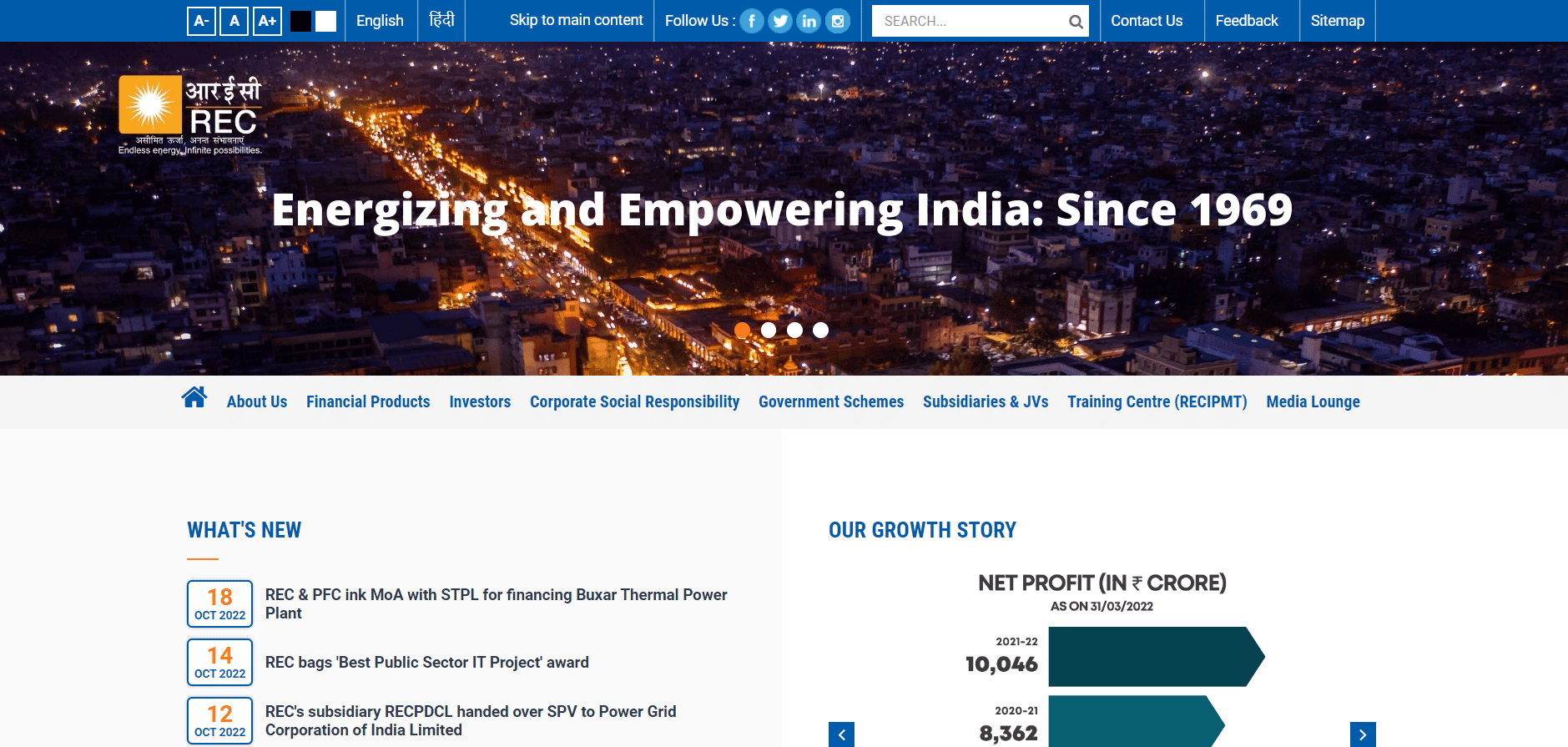What is Dividend Yield?
When buying any type of stock, investors do fundamental assessments on several variables related to the stock and the company in general. The dividend yield is a crucial statistic that is important for investors who prioritize dividend income. The ratio of dividends paid for every equity share to shareholders to the equity share’s current market price is known as the dividend yield of a share. The dividend yield is also a stock’s return over a year of dividend payments. The corporation could decide not to distribute a dividend even if the share price might rise. Dividend yield is represented by the following formula: Dividend Yield = (Annual Dividend/Stock Price) X 100
Factors that affect Dividend Yield
The dividend yield is dependent on these two factors. The share of the price in the current market and the amount of dividend that is paid on each share to the shareholders. Now, any fluctuation in either of these two numbers will cause the dividend yield to change as well. If there is an increase in the stock price, then the dividend yield will decrease and vice versa. Also, if there is an increase in the annual dividend then the yield will increase and vice versa. Older, more reputable businesses can easily distribute a greater dividend. On the other side, small and new businesses won’t offer substantial dividends. Older businesses can also have a long history of consistently paying dividends, which can assist investors to choose the stock during the research period. When it comes to the equities they hold, investors need to understand what the overall yield is. For value investors who wish to generate consistent passive income through their assets, this particular number is crucial. These investors want their assets to provide steady cash flow.
Evaluating Dividend Yield
A company’s stability and profitability are indicated when it pays dividends. This is because only profitable businesses are most likely to pay dividends. There are usually categorized as best dividend paying stocks in India today. Such businesses are frequently viewed as ‘safer’ investments by investors. Investors evaluate the dividend yields of several firms before choosing which stock to purchase. To assess a company’s dividend yield, investors may consider the future and trailing dividend ratios. Investors frequently inquire about a fair dividend yield. It is important to realize that dividend yield differs throughout sectors and companies. While firms in the PSU may have reliable dividend rates, certain industries, such as IT or electronics, offer small dividend yields.
What are High Dividend Yield Stocks?
The top 10 dividend paying stocks in India 2022 are those with high dividend yields in comparison to benchmark indices like the Sensex and Nifty 50. A fair and reasonable understanding of the share’s price can be gained from the high dividend yield of a particular share. Simply said, a stock with a high dividend yield can be undervalued by the market and have further growth potential in the future.
10 Best Dividend Paying Stocks in India Today
Regular dividend payments are one of the characteristics of firms with good fundamentals, strong management, and overall good health. Investors are fortunate to have corporations that consistently pay dividends. Here are the top 10 dividend paying stocks in India 2022 that you need to keep an eye on:
1. Indian Oil Corporation India
A Maharatna Company under the authority of the GOI, Indian Oil Corporation Ltd. has commercial activities across the whole hydrocarbon value chain, from refining, pipeline transportation, and selling of petroleum products to exploration, R&D, production, marketing, and petrochemicals. It holds a dominant position in India’s oil refining and petroleum marketing industries.
P/E Ratio: 4.98 Dividend Yield: 12.52% Market Cap: INR 947.53B Share Price: INR 67.15
2. Rural Electrification Corporation Limited
As an infrastructure finance company incorporated with the Reserve Bank of India (RBI), Rural Electrification Corporation provides financial support to businesses along the whole value chain of the power sector (IFC).
P/E Ratio: 2.38 Dividend Yield: 12.41% Market Cap: INR 243.44 B Share Price: INR 92.45
3. NMDC Limited
As one of the most successful Navratna enterprises, the firm was founded in 1958 as a government-owned enterprise under the direction of the Ministry of Steel. The National Mineral Development Corporation (NMDC) has the main function of exploring and producing diamonds and iron ore, as well as marketing wind energy and manufacturing sponge iron. 18% of the iron ore produced domestically is produced by this firm.
P/E Ratio: 5.05 Dividend Yield: 11.21% Market Cap: INR 385.52 B Share Price: INR 131.55
4. Power Finance Corporation Limited
Power Finance Corporation Limited is a Government of India undertaking and a Non-Banking Financial Company (NBFC) that is registered with the Reserve Bank of India (RBI) as an Infrastructure Finance Company. It is a systemically crucial non-deposit-taking organization. Its business is providing financial assistance to the power sector (IFC).
P/E Ratio: 1.95 Dividend Yield: 11.64% Market Cap: INR 272.06 B Share Price: INR 103.05
5. HUDCO Limited
The Ministry of Housing and Urban Affairs, Government of India, is the owner of the Housing and Urban Development Corporation Limited (HUDCO). It is a major public sector organization in India established as a private limited company on April 25, 1970. The organization acts as a consultancy for projects of designing and planning related to Housing and Urban Development programs in India as well as internationally. It also offers funds for the establishment of new towns.
P/E Ratio: 4.19 Dividend Yield: 9.68% Market Cap: INR 72.37 B Share Price: INR 36.15
Also Read: 15 Best Chemical Stocks in India to Invest
6. Coal India Limited
Coal India Limited (CIL) is owned by the Indian government’s Ministry of Coal and is a key public sector enterprise in India. Its main office is in Kolkata. It is the world’s biggest government-owned coal producer and ranks as India’s sixth-largest employer. About 82% of India’s total coal output is a result of CIL. The electricity and steel industries are the company’s main customers. Cement, fertilizer, brick kilns, etc. are a few examples of consumers from different industries. In the current stock market, CIL is easily one of the best dividend paying stocks in India today.
P/E Ratio: 6.35 Dividend Yield: 7.17% Market Cap: INR 1.46 T Share Price: INR 236.85
7. Hindustan Petroleum Corporation Limited
With its headquarters in Mumbai, Hindustan Petroleum Corporation Limited (HPCL) is an Indian gas and oil refining corporation. On the 2016 Fortune Global 500 list of the largest firms in the world, the company is rated 367th. The corporation earned a Maharatna PSU on October 24, 2019. The main activities and functions of HPCL include refining and selling crude oil, production of hydrocarbons, and the administration of engineering and procurement blocks.
P/E Ratio: 0 Dividend Yield: 6.72 Market Cap: INR 295.63 B Share Price: INR 208.05
8. Majestic Auto Limited
Majestic Auto Limited started in 2015 with facility management services and real estate investments by leasing office space. Space & Infrastructure (such as planning, design, workspace, building, leasing, occupancy, maintenance, and furnishings) and People & Organization are the two core subfields of facility management (such as ICT, HR, accounting, marketing, catering, cleaning, and hospitality).
P/E Ratio: 14.95 Dividend Yield: 5.40 Market Cap: INR 1.44 B Share Price: INR 138.95
9. Geekay Wires Limited
Geekay Wires is an ISO 9001: 2008 accredited producer, exporter, and supplier of the finest wires and cables, including barbed wire, earth wire, stay wire, ACSR steel core cable, patented wire, detonation wire, and spring steel wire, among others. Since its establishment, Geekay Wires has been producing high-quality galvanized steel wires and products to fulfill the needs of numerous customers in the public and private sectors, including those in the power construction, automotive, general engineering, and home segments.
P/E Ratio: 6.05 Dividend Yield: 4.27% Market Cap: INR 611.44 M Share Price: INR 58.50
10. PTC India Limited
Power trading solutions, cross-border power trading, and consulting services are offered by PTC India Limited, formerly known as Power Trading Corporation of India Limited. The business, which has its headquarters in New Delhi, India, also has operations in Bangladesh, Nepal, and Bhutan. PTC India’s subsidiaries; PTC Energy Limited and PTC India Financial Services Limited, manage renewable energy projects and offer financial support to businesses in the power industry, respectively.
P/E Ratio: 5.36 Dividend Yield: 9.72% Market Cap: INR 22.85 B Share Price: INR 77.15
How to pick High Dividend Yield Stocks?
The main thing that investors need to remember is that they shouldn’t base their judgments just on the dividend yield. The dividend yield can quite be high if the share’s market price drops since it measures payouts as a percentage of stock prices. It is certainly detrimental to invest in such companies without investigating the causes of the stock price decline. Hence, let’s look at some of the factors that one should pay attention to while choosing the best dividend paying stocks in India today:
Long Term Profitability
Long-term profitability is an important factor to take into account when evaluating firms that pay dividends. Investors should specifically look for businesses with long-term profit growth prospects between 5% and 15%. Even though any firm could occasionally have lucrative quarterly financials, only companies that have consistently increased their revenue every year should be considered.
Sector’s Health
Analyzing a company’s financial records is important, but it’s just as important to consider the whole industry to develop a more comprehensive outlook. Keep in mind that a sector’s trends might alter over time.
Debt to Equity Ratio
Investors must thus carefully consider a company’s debt-to-equity ratio. One should steer clear of firms that offer dividends but have a lot of debt. Simply said, businesses with debt have a tendency to use their resources to pay it off rather than investing them in their dividend distribution strategy.
Why Dividends are crucial?
When it comes to stock investments, many tend to follow the trend of finding high-yield stocks. Other than earning more and steadily from the stocks, there are many other reasons why investors are always looking for high dividend yield options. Following are the common reasons why one should invest in the best dividend paying stocks in India today:
Steady Growth in Returns
The fact that dividends often increase regularly over time is one of the main advantages of investing in firms that pay higher and regular dividends. The dividend distributions of large-cap and well-established corporations tend to rise annually. However, there is no assurance that stocks will appreciate; they might go up or down. But high-yield dividend stocks give at least a certain part of ROI that is previously assured in terms of regular dividends, even if investing in dividend-paying firms is not always beneficial. Dividend-paying corporations never really quit issuing dividends.
Avoid Constant Market Volatility
There is no doubt that there is a constant movement in the share market causing volatility in the prices of the shares and thus giving rise to portfolio risk. Dividends play a significant role in lowering the risk and volatility of the entire portfolio. Dividend payments help reduce any type of loss caused by a drop in stock price. But dividends provide more than just that when it comes to risk reduction. Studies and experts have shown that during downturn markets, dividend-paying equities perform better than non-dividend-paying ones. Dividend-paying companies often see a substantially smaller decrease in value than non-dividend-paying equities, even if an overall downward movement typically drives share price low on the board.
Evaluating Stocks
With regard to stock selection and equity research, dividends offer a useful starting point. When evaluating companies, dividends are frequently a more accurate indicator than other popular metrics, such as the price-to-earnings ratio or P/E ratio. The majority of financial measures that analysts and investors use to evaluate stocks rely on data taken from the financial statements of the firms. When analyzing equities simply based on a business’s financial statements, there is a risk that the firm may, and sometimes does, distort its financial statements to look more appealing to investors. However, dividends provide a reliable measure of a company’s performance. To put it simply, a business has to generate actual cash flow to pay dividends. This makes it easy to judge whether a company is actually doing good or is simply showing good numbers in statements.
Maintains Purchasing Power
Inflation’s impact on investment returns is another area that dividends may help with, although investors occasionally tend to overlook it. An investment must first generate enough of a yield to offset the loss of buying power caused by inflation before an investor can enjoy any meaningful net benefit from the investment. Therefore, knowing if the company has a good dividend yield, one can invest in shares that will help outpace inflation.
Tax Benefits
Dividends are a particularly tax efficient way to earn money because of how they are classified in terms of taxes. Ordinary income is taxed at far higher rates than qualified dividends. Choosing high dividend yield shares will help avoid heavy taxes and save money in the longer run. Also Read: Top 50 Small Cap Stocks List
The Downside of High Dividend Yield of Stocks
An investment opportunity is not necessarily created by a company’s increased dividend yield. This is so because falling stock prices will increase the dividend yield. When a stock’s price is declining quickly, the dividend yield could appear to be very high. In this case, purchasing the company’s shares might not be a wise move. One thing to keep in mind is that these stocks tend to change over time, keeping in mind the fact that the market is ever-changing. We hope you liked our list of the best dividend paying stocks in India today. It is important to remember that you should avoid purchasing stocks only based on dividend yield and instead make sure the firm is worthwhile for investment.















